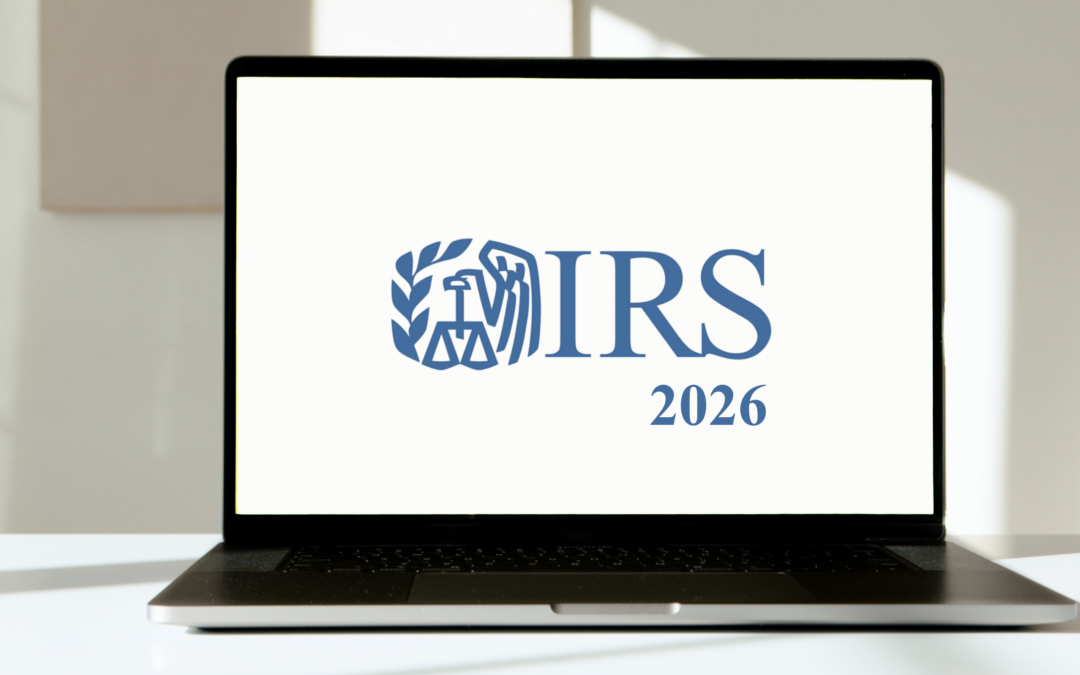You’re likely familiar with the term “income tax” – whether from filing your own taxes or keeping up to date on the news. Taxes are an integral part of our economy, and every citizen has to pay them.
Despite the prevalence of taxes in modern day society, many people still don’t understand them. You might file your taxes yearly, but do you really understand the facts behind what you’re doing?
Gaining a deeper understanding of income taxes is a great way to improve your financial awareness and take charge of your personal finances. It’s time to take that next financial step now – let’s dive into everything you need to know about income taxes.
What is Income Tax?
Before we can get into the nitty-gritty details, it’s important to understand the basics. The best place to start is to understand what, exactly, income tax is.
Income tax is a government-imposed tax that’s paid by individuals. This tax takes a percentage of earnings from individuals. The money is then used by the government to fund things like schools and hospitals.
For the purpose of this section, we’ll be talking about the income tax that individuals (like you) pay on your annual earnings. We’ll talk more about income tax and businesses a little later.
Individual income tax is paid on an individual’s personal salary or taxable earnings. Commonly, this is your part-time or full-time job. If you work more than one job, you will have to pay income tax for each job that you work. Some other types of taxable earnings include bonuses, income from investments (dividends and interest), tips, gambling income, and unemployment benefits.
The most common types of income tax that are paid by most taxpayers are federal income tax, state income tax, and local income tax. Everybody must pay federal income tax on their taxable earnings as mentioned above – unless taxable earnings are low enough, federal income tax is not owed. For example, in 2023, the married filing jointly standard deduction is $27,700. That means if a family adhd $27,700 of total income and they took the standard deduction of the same amount, they would have no taxable income. State income tax is an additional tax imposed by the state you are living and/or working in. Local income tax applies only to residents/employees in certain municipalities.
State income tax is governed by different rules depending on what state you live in and are employed in. Some states don’t impose a state income tax at all. These nine states are: Alaska, Florida, Nevada, New Hampshire, South Dakota, Tennessee, Texas, Washington, and Wyoming. Although these states do not impose income tax, you’ll still have to file your federal taxes. You’ll also still have to pay things like sales taxes and fuel taxes.
The percent of your income that is taxed is dependent on two things: your tax filing status, and how much you earn. In typical situations, the more money you make, the more income tax you pay.
How Does Income Tax Work?
So you understand what income tax is, but you’re still unsure exactly how it works. And we get it – taxes can be complicated! We’ll go over how income taxes work for your peace of mind and improved financial know-how.
In the United States, the IRS (Internal Revenue Service) is responsible for collecting taxes and enforcing tax laws. When you (or a tax professional) file your taxes, by filling out all necessary forms, the IRS will process the information that you submit. They will then determine whether you still owe taxes or if you are owed a tax refund.
How is this determined? As you likely know, when you start at a new job, you fill out tax forms. These tax forms are used to manually withhold taxes from each of your paychecks and send this amount to the government. This is to ensure that you aren’t hit with an incredibly large tax payment to make when filing your taxes. Instead, you will have paid a certain amount of your income taxes already by the end of the year.
When you’re filing your taxes, it’s possible to get several deductions and/or credits which can help save you money along the way. While processing your tax forms, the IRS will ensure that the information you submitted was correct and that you aren’t incorrectly claiming deductions or credits. Your employer(s) will also directly send forms to the IRS, which means you can’t avoid reporting certain incomes, or the IRS will be aware.
What Defines Taxable Earnings?
We’ve been discussing taxable earnings a lot, as a way of understanding what income tax is and how it works. There are two distinct types of taxable earnings: earned income and unearned income.
Typically earned income and unearned income are taxed at the same rate – but not always. That’s why it’s important to understand the difference between the two when planning for your income taxes. To make it easier, we’ll provide some examples of what counts as earned income:
- Wages/salary from your part-time or full time job.
- Unemployment benefits and retirement benefits.
- Sick pay and vacation pay.
- Some disability benefits.
All of the above are examples of earned income. This is income that you generated by working for an employer (or for yourself).
On the other hand, unearned income is income that you don’t have to work for. Typically, this comes in the form of income acquired through investments or virtual currencies. Some examples of unearned income include:
- Virtual currencies.
- Interest.
- Dividends and royalties.
- Profits gained through the sale of your personal assets.
Individual Income Tax vs. Business (or Corporate) Income Tax
As we mentioned earlier, there are two primary types of income tax: individual (or personal) income tax and business (corporate/partnership/sole proprietor) income tax. We’ve gone over what individual income tax is and how it works. But what about business income tax?
Simply put, business income tax is for businesses what individual income tax is for individuals. Whereas you have to pay taxes on the money you earn from your employer, your employer must also pay taxes on the money they earn from their customer or client base.
Whether you’re a small business, a corporation, or a self-employed individual, you will need to pay business income taxes annually. However, businesses have to consider things such as business operating expenses when filing their taxes. This is why it’s vital for business-owners to keep records and receipts for everything.
Just like some states don’t levy a state income tax, the same thing is true for corporate income taxes. South Dakota and Wyoming are corporate income tax free.
When Did Income Tax Start? And Is It Here to Stay?
Understanding the history of our economy is an important step in gaining a fuller perspective on finances, for yourself and for your future. In order to move forward, it’s always important to know where we came from.
The history of income tax in the United States is a relatively recent one. In 1862, an income tax was imposed to help finance the Civil War. However, once the war was over, the income tax was rescinded.
Later, in 1913, the Revenue Act of 1913 was passed, reinstating an income tax in the United States. 1913 was also when the Form 1040, a tax form that’s used to this day, was introduced. At that time, there were no filing status differences and the marginal progressive rates ranged from 1 to 7 percent! The laws did not include withholding at all. People simply wrote a check to pay their tax at the end of each year. Withholding was enacted in 1943 to fund World War II.
Since then, taxes have shifted and changed with the economy, although the core idea behind them remains the same. But how much will income taxes likely change in the future?
Although many people are unhappy with the ways that income taxes are handled in the United States, it is unlikely that they will ever be completely eliminated. (At least, not for many, many years). Income taxes don’t just fund government projects – they also directly impact government spending and government debt. All money has to come from somewhere, right?
It is unlikely that income taxes are going anywhere, anytime soon. So it’s important that you inform yourself on how they work, and how you can make them work for you. And we’re here to help.
Take Income Taxes Into Your Own Hands With TCG’s Financial Planning Services
Now that you have a better understanding of income taxes, you’re likely looking for ways to better plan for financial success. You can take income taxes into your own hands, and the best way to do that is by speaking with an experienced advisor. Here at TCG, we have a top-tier team of financial advisors who are ready to help you take your finances into your own hands.
In addition to reaching out to one of our happy-to-help advisors, you’ll want to keep these important things in mind:
- Understand your tax filing status, and how that will affect your income taxes. The standard deduction you can take when filing your income taxes varies greatly depending on your filing status. The five main filing statuses are: single; head of household; married filing jointly; married filing separately; qualifying widow/widower with dependent child.
- Consider adjusting your tax withholding. As we discussed earlier, the amount of income that is withheld from your taxes impacts your end-of-year tax refund. You can always adjust your withholding to better suit your financial wants and needs.
- Reach out to our team at TCG with any financial questions or concerns. We’ll help you make informed financial decisions that are right for you!
Sources:
https://www.investopedia.com/terms/i/incometax.asp
https://www.thebalancemoney.com/taxes-101-five-basic-ideas-3193486#:~:text=The%20federal%20income%20tax%20is,through%20quarterly%20estimated%20tax%20payments.
https://smartasset.com/taxes/understanding-taxes
DISCLOSURES
Investment advisory services offered through TCG Advisors LLC, a HUB International company, an SEC registered investment advisor. Insurance Services offered through HUB International. Tax services offered through RPW Solutions. Although the information in this blog has been compiled from data considered to be reliable, the information is unaudited and is not independently verified.
TCG Advisors does not provide tax, legal or accounting advice. This presentation was prepared for information purposes only, and is not intended to provide, and should not be relied on for, tax, legal or accounting advice. You should consult your own tax, legal and accounting advisor before engaging in any transaction.
When we provide investment advice to you regarding your retirement plan account or individual retirement account, we are fiduciaries within the meaning of Title I of the Employee Retirement Income Security Act and/or the Internal Revenue Code, as applicable, which are laws governing retirement accounts. The way we make money creates some conflicts with your interests, so we operate under a special rule that requires us to act in your best interest and not put our interest ahead of yours.
Under this special rule’s provisions, we must: (1) Meet a professional standard of care when making investment recommendations (give prudent advice), (2), Never put our financial interests ahead of yours when making recommendations (give loyal advice), (3) Avoid misleading statements about conflicts of interest, fees, and investments, (4) Follow policies and procedures designed to ensure that we give advice that is in your best interest, (5) Charge no more than is reasonable for our services, and (6) Give you basic information about conflicts of interest.
This website is not authorized for use as an offer of sale or a solicitation of an offer to purchase investments. This website is for informational purposes only and does not constitute an offer to sell, a solicitation to buy, or a recommendation for any security, or as an offer to provide advisory or other services in any jurisdiction in which such offer, solicitation, purchase or sale would be unlawful under the securities laws of such jurisdiction. (TCG.148.2023)



